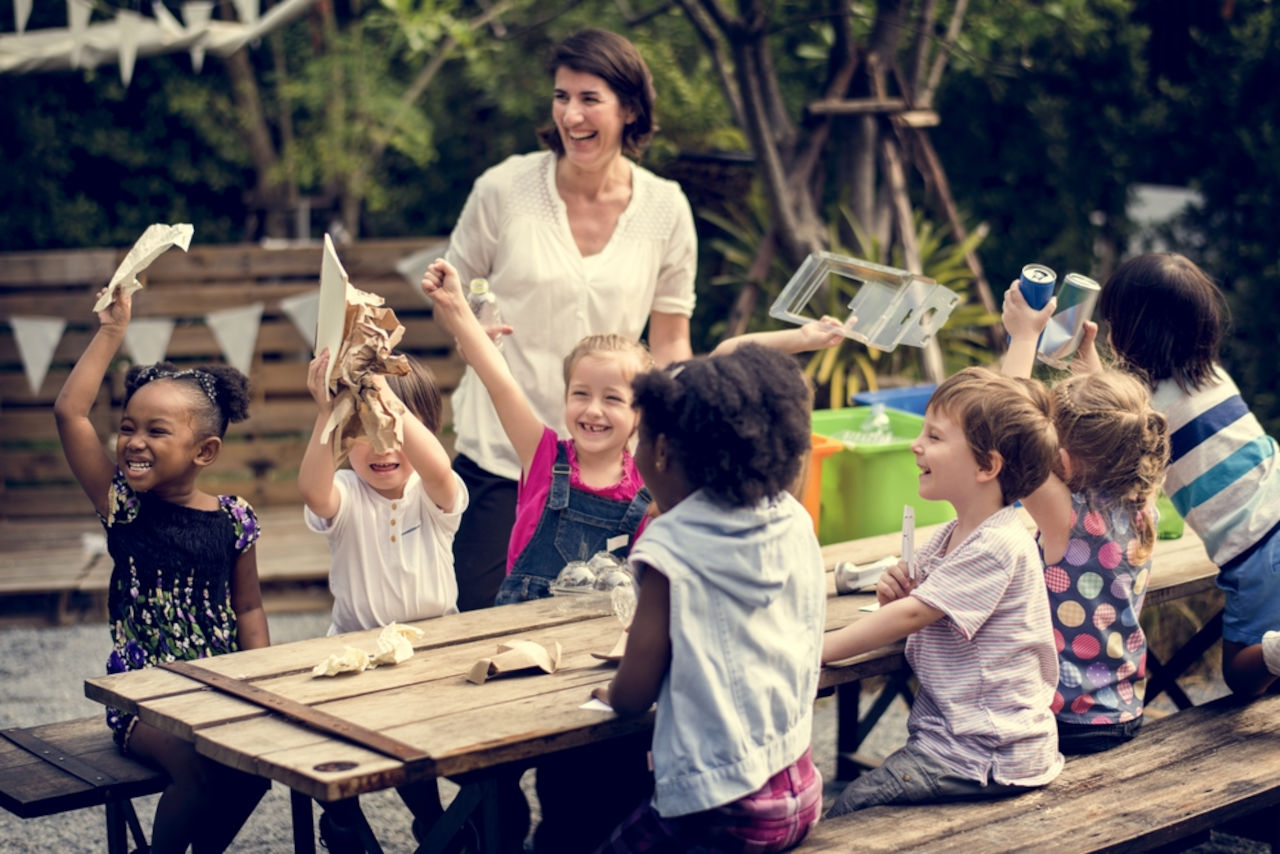Debate: School in nature, an alternative to be developed
The craze for outdoor schooling is a reality. Over the past year, there has been a surge in calls for teachers to take their classes out into nature. Pediatricians and doctors have highlighted the benefits of this movement for children's health, and the Ministry of Education has followed suit, supporting local initiatives that are springing up everywhere.
Sylvain Wagnon, University of Montpellier

But behind this apparent consensus, we need to think about how to sustain this momentum and engage in genuine reflection on outdoor education, so that the craze is not just a passing fad but a new way of teaching.
Articulate learning
This movement away from traditional schooling did not begin with the health crisis; it has a history, principles, and practices that vary greatly, with different objectives. Internationally, the Forest Schools and Outdoor Schools movement offers a real alternative to traditional education. This is not yet the case in France, not by a long shot.
Similarly, education for sustainable development, promoted by associations, is at the heart of a new synergy: a partnership between environmental education associations and schools to support projects.
Beyond the desire to take the class out into nature and "spend a morning outdoors" with the children, it is important to consider this form of learning within the curriculum by combining formal and informal knowledge acquisition, linking learning outside the classroom with more conceptual learning in the classroom.
While the benefits in terms of well-being and health are obvious, what about learning? Whether it's subject-specific or cross-curricular learning, there are many possibilities, regardless of the age of the students.
As for non-formal learning, linked to values such as cooperation, mutual aid, and the development of critical thinking, there are also many opportunities to work on these with students. Understanding teachers' expectations and supporting them in this process is a major undertaking for educational institutions.
The eco-educational challenge
Outdoor learning is not only justified by its impact on academic learning and children's well-being. Doesn't outdoor schooling imply a new educational relationship between teachers and students, as well as a redefinition of the school system?
The eco-educational challenge proposed by the school aims to transform educational practices by working from our cultural representations. It is an invitation to implement education focused on the common good, as proposed by educational land areas, which would allow us to revisit the place of humans in ecosystems.
How can we develop another way of teaching that can be done regularly, regardless of the weather, in a location outside the classroom? The goal is to offer a complementary approach to teaching both inside and outside the classroom.
At the beginning of the20th century, Belgian educator Ovide Decroly emphasized that, for him, "class was when it rained." This was his way of saying that class has its place in learning, but that practical learning related to the environment must be a priority.
See also:
Outdoor schooling: exposure to nature isn't everything!
In 2021, the goal is also to consider this type of education in rural areas as well as urban areas. Initiatives in Paris clearly show that this is possible. There are many complementary perspectives: rethinking school spaces, links with the environment, and both formal and informal learning.
Playful approaches
Outdoor schooling also means developing connections with nature within the school itself. The Ministry of Education, through its E3D certification program, seems keen to promote teachers' projects and initiatives in this area.
For their part, mayors are stepping up measures to green school grounds, giving concrete form to this movement. A fundamental shift in which France must catch up with other countries such as Canada.
A recent study clearly highlights the close link between academic success and contact with nature. Outdoors, active teaching methods are essential to promote intellectual and motor skills through experimentation.
Play also plays a central role in nature-based education. Children explore the natural environment freely, which is rich in terms of creativity and reflection (they observe and categorize the elements around them: trees, rocks, leaves, etc.). It is important to seize opportunities to make hypotheses, discuss them, question them, and turn them into lessons.
Little by little, teachers learn to put aside what they had planned in order to listen to a bird singing, watch a bicycle go by, or feel the wind blowing through their hair. This is how students learn to let go and live in the moment. Through children's literature, it is easy to bring what children have discovered in the forest or on the beach back into the classroom, while enriching their knowledge.
Child development
In nature, it is also possible to engage in more formal learning, such as mathematics, where geometric and arithmetic concepts can be applied by studying tree growth.
The current boom in outdoor schooling in France is yielding the first results of a sensory and cognitive approach that takes into account child development and encourages hands-on experiences. This teaching method gives meaning to children's learning and allows students with special needs, learning disabilities, or high potential to learn like everyone else.
See also:
The body at school: a forgotten dimension
Bringing together local initiatives and evaluating the results of outdoor schooling in France are becoming major challenges for the long-term integration of outdoor schooling into the French public education system. Teaching outdoors can foster this new connection with nature and, by becoming part of a broader reflection on teaching methods and educational goals, could become the educational revolution ofthe 21st century.
This article was co-written with Corine Martel, PhD in ecology, science education advisor – ESD for the Hérault region, and director of the EducNatu’RE resource center.![]()
Sylvain Wagnon, Professor of Education Sciences, Faculty of Education, University of Montpellier
This article is republished from The Conversation under a Creative Commons license. Readthe original article.